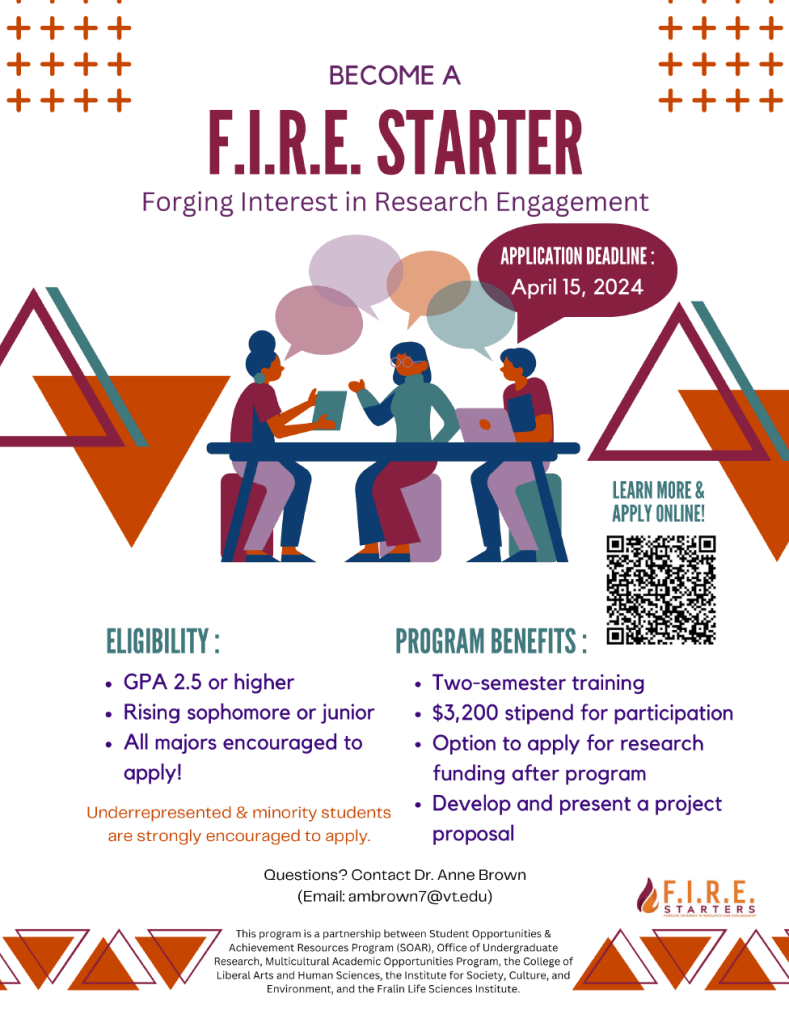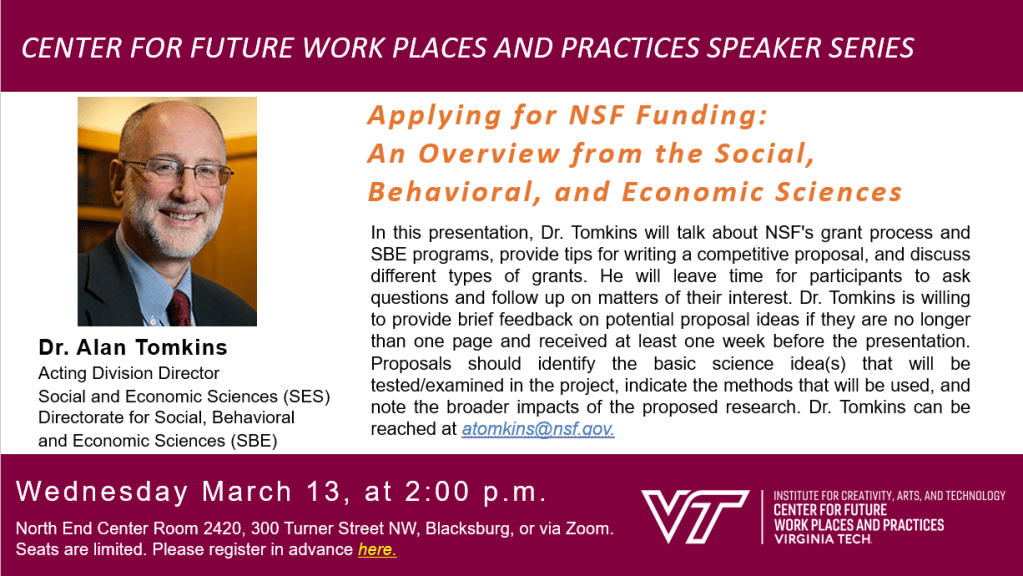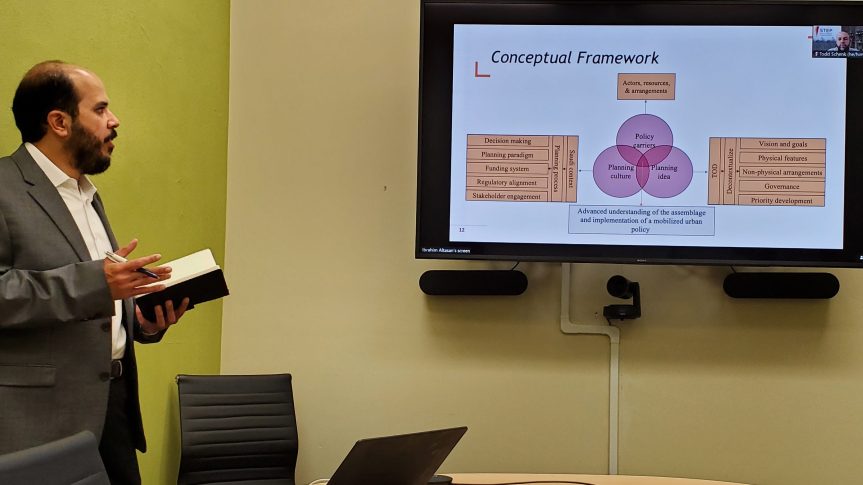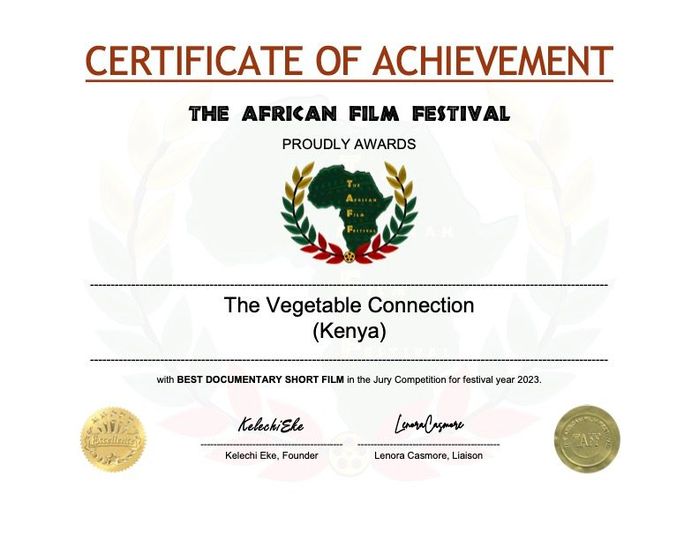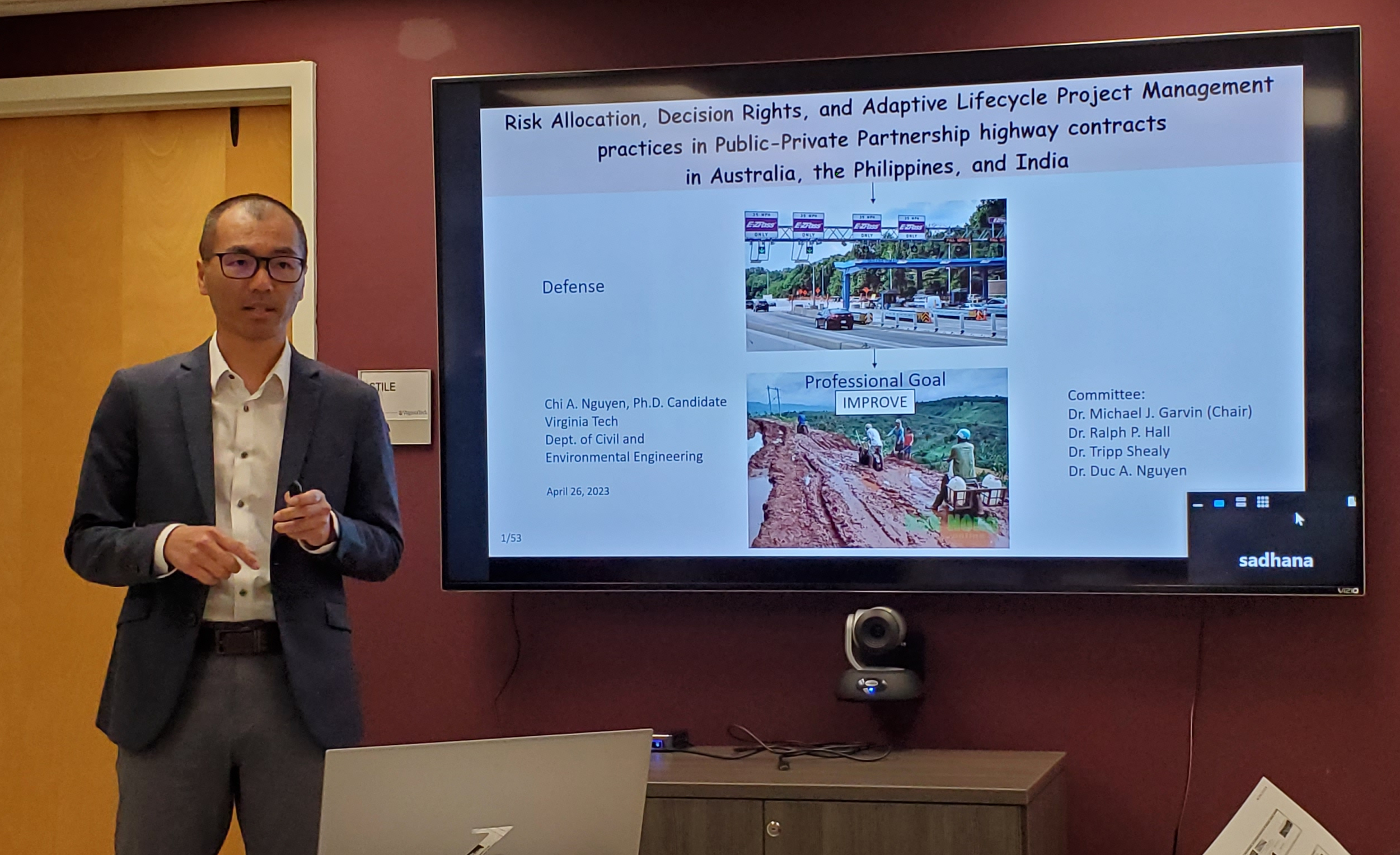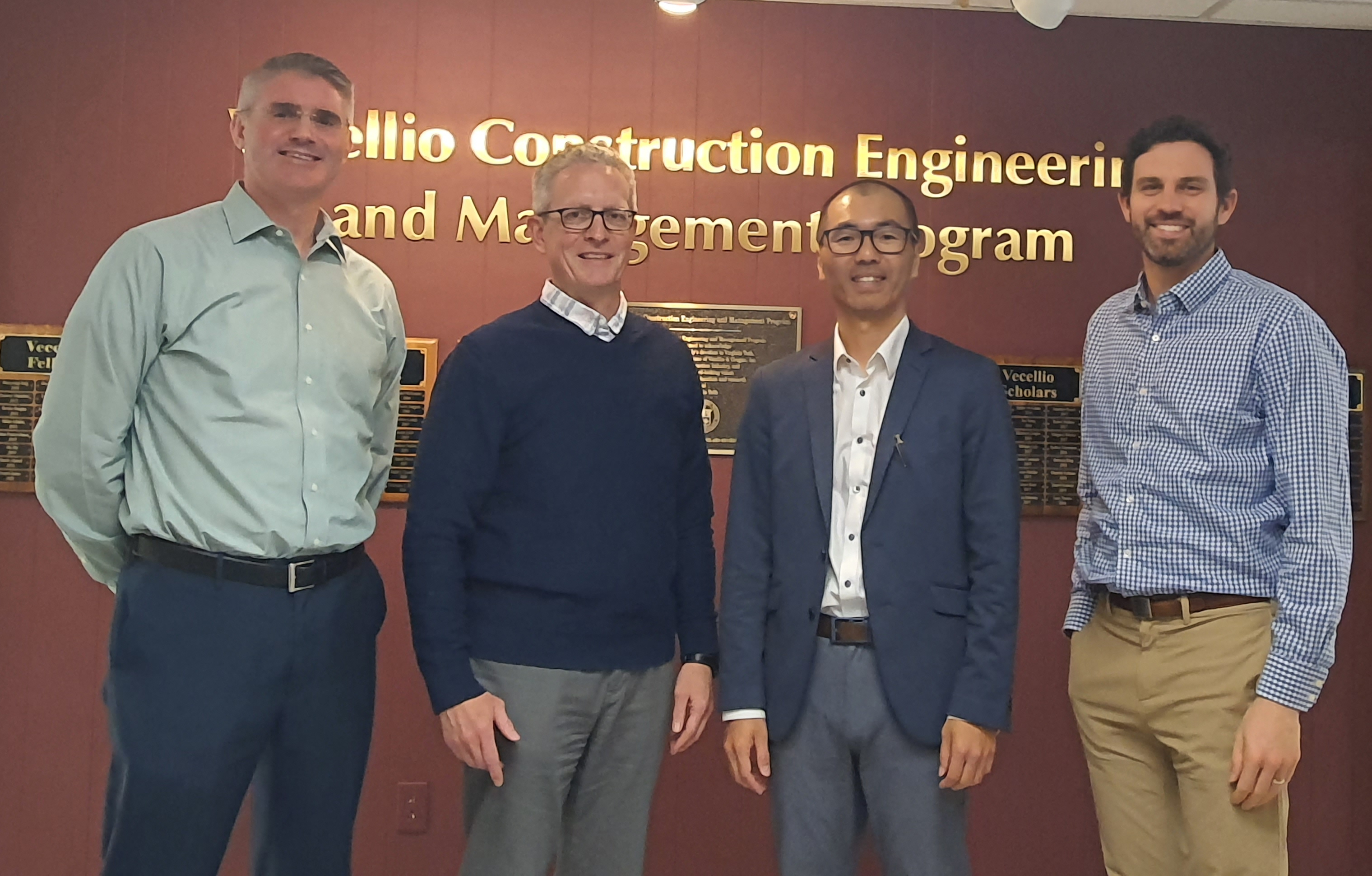Congratulations to Dr. Chi Nguyen Anh for successfully defending his PhD dissertation entilted “Risk Allocation, Decision Rights, and Adaptive Lifecycle Project Management Practices in Public-Private Partnership Highway Contracts in Australia, the Philippines, and India.” The general audience abstract for his dissertation is provided below.
I served on Chi’s dissertation committee along with Michael Garvin (Committee Chair), Duc A. Nguyen, and Tripp Shealy.
Abstract
Public-private partnerships (PPPs) involve decades-long contracts between governments and private firms where a single private firm typically designs, builds, finances, operates, and maintains a specific infrastructure facility for revenues mainly from users (tolls) or governments. PPPs are theoretically expected to address certain limitations of traditional delivery approaches by capitalizing on private sector expertise and capabilities. Numerous studies have shown the feasibility of PPPs in many projects and sectors in various countries. However, PPP transactions are characterized by high uncertainty as a result of the involvement of numerous diverse stakeholders and the integration of multiple project lifecycle phases that span decades where changes in circumstances and requirements are inevitable. Contracts are the key and central instrument in project governance. Thus, addressing uncertainties is crucial in designing and implementing a PPP contract. Using a data set of 20 contemporary greenfield highway contracts in Australia, the Philippines, and India, this dissertation explored three key issues: risk allocation, decision rights allocation, and lifecycle project management. Risk allocation refers to which contracting party would take responsibility for certain contractual requirements with corresponding consequences or benefits. Decision rights allocation defines the boundaries of public sector involvement and consequently its control of the private sector’s activities and decisions. Lifecycle project management is a set of contractual requirements, project structure, processes, and principles that steer the actions of and interactions between parties over a project’s lifecycle.
For risk allocation, the results reveal that most of the 35 key risks investigated were either transferred to the private sector or shared. One interesting and, to some extent, unexpected finding was the relatively high level of similarity in risk allocation within each country and across the countries, despite remarkably different characteristics at both project and country levels. This suggests that similar risk allocation practices may be employed across regional and comparable countries and perhaps beyond. No noticeable transnational trends or variances were observed except some shift of responsibilities to the private sector in user-paid projects (typically longer contract duration) compared with government-paid ones (typically shorter). Some limited trends over time such as a decrease in silent or indeterminate provisions and more risks retained by the public sector in recent projects in the Philippines and India, respectively, were observed. Additionally, exogenous risks (external to the project) had more consistent allocation and were shared more than endogenous risks (within a project’s boundary). Some silent provisions were identified, indicating areas for improvement of contractual designs.
For decision rights allocation, the key finding was the dominant level of owner control in 10 key provisions in almost all contracts, regardless of the country’s level of development and the substantial number of risks transferred to the private sector. Contracts in Australia were more rigid, having distinctive, rigorous, and more detailed requirements with more efforts required beforehand to specify numerous provisions. Some limited national trends include contractual design evolvement over time in some provisions in the Philippines and India. Some silent provisions were identified, indicating areas for improvement or consideration.
For lifecycle project management, parties designed contractual practices to rely on (1) contractual requirements with consequences for noncompliance and harmonious and collaborative relationships between parties, (2) rigid and detailed requirements and flexible ways to correspond to uncertainties, and (3) output-based management approaches (e.g., performance linked payments) and process-based management approaches (e.g., regular meetings and communication, procedures to resolve disputes) to address future uncertainties throughout a project’s contract duration. Contracts in Australia tend to be more comprehensive in many areas requiring more ex ante contracting efforts such as naming contractors in contracts and ex post implementation efforts to comply with many distinctive requirements such as those concerning environment and community/user management. Meanwhile, contracts in Australia likely rely more on trust-based management versus monitoring/control-based management, having limited requirements for monitoring and safeguarding the contract. Overall, the common and different practices revealed facilitate informed decisions such as market entry, project selection, and strategic contractual designs at both the project-level and policy-level, especially for evolving markets such as the Philippines, India, and other regional and comparable countries. For instance, international developers expecting high revenue can choose the Philippines over India since revenue risk is typically a private risk in the Philippines but shared in India. Additionally, governments in the Philippines and India might want to consider adopting more trust-based management practices so that their contracts would better attract and incentivize international developers. The findings also provide contractual evidence that supports numerous contract and governance theories and principles and establishes a baseline for subsequent inquiries such as investigating the effectiveness of the practices uncovered, the key reasons for parties’ contractual choices, and the gaps with parties’ preferences. The research is characterized by its broad scope exploring comprehensive sets of key provisions in 20 contracts spanning three countries and its important implications for both theory and practice of PPP contractual designs.
The full dissertation can be accessed here.
